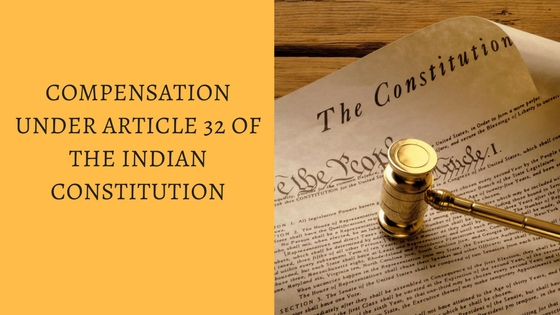Aapka Consultant Judgment Series- In this series, we are providing case analysis of Landmark Judgments of Hon’ble Supreme Court of India.
Rudul Sah Vs. State of Bihar and Anr.
AIR 1983 SC 1086, 1983 CriLJ 1644, 1983 (2) SCALE 103, (1983) 4 SCC 141, [1983] 3 SCR 508
Hon’ble Judges/Coram: Y.V. Chandrachud, C.J. Ranganath Misra and A.N. Sen, JJ.
Date of Decision: 01.08.1983
FACTS:-
Rudal Shah was detained illegally by the State Authorities. He was acquitted by the Court of Sessions, Muzzaffarpur, Bihar on June 3, 1968 but he was released from the jail on October 16, 1982, that is more than 14 years after he was acquitted. So, he filed writ petition and asked for his release and certain ancillary reliefs in the form of rehabilitation, reimbursement of expenses which he may incur for medical treatment and compensation for the illegal incarceration. Although when this writ petition came up before the court on Nov. 22, 1982, Petitioner was already released by the Authorities on October 16, 1982 therefore, release from illegal detention became infructuous in the writ petition but Court issued notices with respect to other prayers claiming ancillary reliefs.
ISSUE:-
Can prayer for compensation be accepted by the Court under Article 32 of the Indian Constitution?
JUDGMENT: –
Court issued show cause notice to the State Government asking for the explanation as to why the petitioner was not released for over 14 years since his acquittal. In reply, Jailor of the Muzzaffarpur Central Jail said that, ‘That the petitioner was received on 25.3.67 from Hazaribagh Central Jail and was being produced regularly before the Additional Sessions Judge, Muzaffarpur and on 30.8.68 the learned Judge passed the following order :
The accused is acquitted but he should be detained in prison till further order of the State Government and I.G. (Prisons), Bihar.
Apart from this, Jailor also mentioned in the reply that the accused Rudul Sah was of unsound mind at the time of passing the above order and on 18/2/1977, Civil Surgeon, Muzaffarpur, reported that accused was normal and the same information was communicated to the Law Department on 21/2/77. And the petitioner was released on 16.10.82 in compliance with order dated 14.10.82 of the Law Department. The reply of the Jailor does not disclose any data on the basis of which he was adjudged insane, what all specific measures taken to cure him of that affliction and whether it took almost 14 years to cure that mental imbalance. No medical opinion was annexed to support the view that what kind of medical treatment was prescribed for and administered to him. There is no proof to show that accused was insane at the time of the acquittal. Moreover, if he is taken to be insane at the time of the acquittal, he then can’t be tried at all for the simple reason that an insane person has certain statutory rights in regard to the procedure governing trial. Apart from this, when it was communicated to the law department that Accused is sane on Feb 18, 1977, then still why did it take them four and half years to release the accused? Court was of the view that story of the insanity of the accused was an afterthought.
It is true that Article 32 cannot be used as a substitute for the enforcement of rights and obligations which can be enforced through ordinary processes of courts, in civil and criminal. A money claim has therefore to be agitated and adjudicated upon in a suit instituted in a court of lowest grade competent to try it. But essential question is that can compensation be granted under Article 32 of the Indian Constitution like in the instant case in which there is clear cut deprivation of the Fundamental rights.
If Petitioner files a suit for the damages for his illegal detention, there is no doubt that he won’t get damages by the court, although at present time, it is not possible to ascertain exact amount to be decreed by the court in the absence of evidences. In these circumstances refusal of this court in passing an order of compensation in favor of the Petitioner will be like doing a mere lip service to the fundamental right to liberty which the state government has so grossly violated. One of the ways in which the violation of Article 21 can be prevented and due compliance can be secured is through the payment of monetary compensation. The right to compensation is some palliative for the unlawful acts of instrumentalities which act in the name of public interest and which present for their protection the powers of the State as a shield. Respect of the rights of the individuals is the true basis of the democracy.
Compensation of Rs. 35,000 was awarded to the Petitioner and the above mentioned compensation amount will not preclude petitioner from bringing a suit to recover appropriate damages from the State and its erring officials.
HELD: –
The Supreme Court can under Article 32 pass a judgment of the compensation in case of infringement of fundamental right, if justice so requires.
To Get Legal Opinion from Advocates/ Legal Experts, Please click here
To Get Legal Opinion from Retired Hon’ble Judges, Please click here












